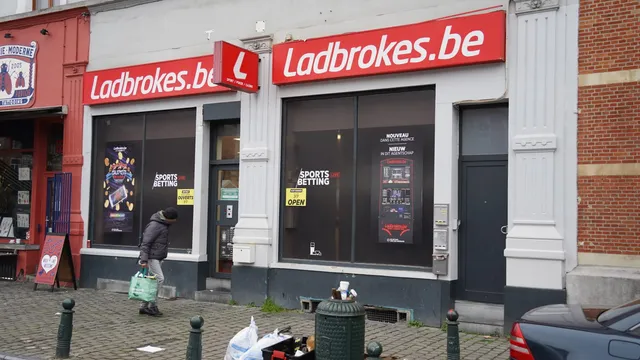Brussels betting offices have seen their income sometimes drop by up to 30 percent in recent months, because they have been obliged to take photos of their customers since October 1. A judge has now overturned the measure for violation of privacy.
“Let us protect the vulnerable players. Show an ID to the administrator,” reads a note hanging on the door of betting office Ladbrokes on the Vossenplein in Brussels. You have to ring the bell to get in. Four customers carefully watch the various screens with broadcasts of matches and scores, hoping for the big fate.
“I don’t come here often, just once in a while,” says one of the men, his gaze fixed on the results. “I am glad that the law is no longer in force, because that is a serious invasion of privacy.”
The employee behind the cash register also thinks this way. “Many customers stayed at home. The new arrangement scares people off. Fortunately, things are now starting to get going again.”
Identification Rules
Since October 1, betting offices are obliged to photograph all customers, copy their identity card and have them sign a register. All data is kept for ten years. In this way, the government wants to check whether the person concerned does not appear in the EPIS database. This database contains the data of, among other things, people with heavy gaming debts. The control system has been around for much longer for casinos, slot machine halls and gambling websites.
According to the Professional Association of Betting Offices (BVWK), this legislation is in violation of privacy. That is why, in mid-October last year, the organization, together with 202 independent brokers, filed summary proceedings against the Belgian state at the Court of First Instance of Namur, to oppose the identification rules. They won that case on Tuesday.
The BVWK says it is in favor of initiatives that better protect consumers, but calls the legislation disproportionate compared to the objective. “Actually, you only need the surname, first name, date of birth and possibly the national register number to check whether someone is in the EPIS database,” says Tom Stammeleer of the BVWK. “A photo is not necessary at all.”
The organization also points to an inconsistency, as the legislation does not apply to the national lottery and newsagents.
Due to the legislation, according to Stammeleer, the betting offices have suffered an average loss of between 20 and 30 percent, also in Brussels. This loss also has an impact on the income of the Brussels Region, Stammeleer argues. For example, the income from games and betting in 2023 was estimated at around 30 million euros.
Gambling Lobby
Federal Minister of Justice Vincent Van Quickenborne (Open Vld) has already announced to Het Nieuwsblad that he will appeal against the judgment of the Namur judge. “My stomach turns when I read that the gambling lobby fears that it will lose money if it has to refuse gambling addicts from its betting shops.”
“However, the cynicism of the sector no longer surprises me,” says Van Quickenborne. “They have been systematically fighting for years every decision we make to better protect vulnerable people. But I will not allow affected families and aid workers to stand by and watch vulnerable gambling addicts ruin themselves in betting shops.”
This article is originally published on bruzz.be




